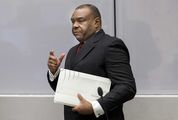JANNIE Serfontein is CEO of Eqstra.
BUSINESS DAY TV: Further impairments at industrial equipment, contract mining and fleet management firm Eqstra have led to a R1.1bn loss for the first half, a period described as pivotal by management. But operating profit from continuing operations has grown by 7% to R436m and joining me now on News Leader to discuss the results is CEO Jannie Serfontein.
Jannie ... when you talk about a pivotal period for Eqstra are you referring to the fact that you’re whittling down the business to what you want it to be in the future?
JANNIE SERFONTEIN: Yes ... we got into a lot of businesses in the past that we shouldn’t have got ourselves into. It’s actually sticking to our knitting, back to our core and to first address all those noncore issues. This was a six-month consolidation where we got out of a lot of those operations.
BDTV: The one biggest drain for you was the Benga contract mining operation in Mozambique but what is considered noncore, and have you actually exited all of the so called noncore aspects of this business?
JS: Yes, I think in the Benga, obviously it was quite a big asset, it was also exposure to contract mining, and we’re out of that now. One of the things that we have looked at is the territory, obviously, although it was a dollar-based contract we were worried about the economy in Mozambique per se, as well as the exposure to contract mining. To us, the nice thing is contract mining is now below 30% of the group and contract mining per se 23%, although there is some yellow equipment on the leasing side that makes up the remaining 5%. But I think it’s now a far more balanced risk portfolio within Eqstra going forward.
BDTV: I remember the last time around I spoke to you, a couple of the analysts who actually wanted you to get out of contract mining entirely because they just think it’s a rotten business, so why would you remain exposed to it, albeit at a lower level?
JS: Yes ... if you look at our performance and obviously with the revenue base that has produced almost 50%, operating profit in the division up, I think it has made the turn. Obviously, not giving our optimal returns yet, but we’ve streamlined it and we’re getting into more the services orientated side of things. So we’re not giving our balance sheet any more for customers to use as a funding line but we’re providing services and this is what we’re good at.
BDTV: Okay, talk about the balance sheet. Now you did repay two bonds over the period but if you look at the overall debt that you have on your books its still R7.5bn which is pretty substantial. What is going to happen to that debt and how are you going to bring it down?
JS: Obviously, the biggest portion of that is our bank debt ... this model was set up to be a geared business model where you would always have this refinancing of your bond and capital market and bank debts. The biggest portion of our 70% is bank debts, we’ve already actively engaged with them over the last three months, we were in the process of rolling and extending this debt to give us some term on these things. And with the unlocking of the liquidity and the cash flow coming out of the Benga assets, plus there’s available for sale assets lying on the balance sheet that will be utilised to settle those bonds as they matured.
BDTV: Okay, so realistically within six to 12 months, where do you think the debt is going to be?
JS: Well, I think our target is to at least reduce it by another R1bn over the next 12 months, obviously as I said the Benga asset as well as the excess assets that we do liquidate now and then get the cash in for those things, and then to refinance and get a proper refinancing profile going forward.
BDTV: How likely is it that you’ll be able to sell those assets because the market is really depressed, so who would you sell them to?
JS: The Benga asset is actually the owners of ... that mine who are actually going to buy that asset from us, ICVL and that we’ve signed a letter of intent, and the assets that we hold in SA that’s now available for sale was right down to 30% value, or sale value based on net book value. And those, we believe realistically, (are) currently almost at fire sale value.
BDTV: Will you have to impair anything else that’s in the business or have you taken all of the impairments?
JS: From now every single contract mining asset that we have on our balance sheet is working on profitable contracts ... going forward. There was always a legacy issue that management (was) dealing with and that made us quite uncomfortable because management was starting to focus on things that were noncore for us and now they will focus on getting these profitable projects going forward and make them work for us.
BDTV: Okay, so just to clarify then, with the lenders, are they then supportive of the plans that you’ve put into place and will you not find yourself in a cash squeezed situation six to 12 months down the line?
JS: One of our biggest stakeholders is our funders and especially the banks so we’ve actively or proactively engaged with them. They were part of the decision of the impairments and making sure that we unlock liquidity and get liquidity within the business so it’s a constant process with them and that’s why it’s so important to have quality stakeholders in your business.
BDTV: Some of the other divisions which will be the future divisions for Eqstra, fleet management and also the forklift division, forklifts seem to be doing okay in what you ... say is a very tough and declining market, so how are you managing to hold your own?
JS: Obviously, the forklift market year on year is down 17%, despite that though a solid performance coming out of that business. What is helping us is our leasing book ... as people not buying these things outright, but they start renting and leasing it from you and that gives you the counter cyclicality that we are after so that is a good quality business. It gives you quality returns and the same with our fleet management logistics business.
BDTV: Have you scored any major contract wins for fleet management?
JS: Currently, we haven’t allocated any expansion capex into any of those divisions as we are preserving cash flows because liquidity is key to us but the only capital expenditure that has gone into those divisions is based on the current existing customers that we have.
BDTV: But does that put you in a quandary though because you can’t allocate capital, you’re holding capital back because of your liquidity constraints. Does that mean that you actually can’t grow the areas of business that you want to grow?
JS: Based on our debt profile that we just discussed for us it’s important to first look at our cash flows, I think we’ve already diversified away from pure vanilla leases into these value added services, coming a services orientated business and I think that’s where the focus should be going forward. So there are still some of the underperforming contracts where we’ve exited ... those businesses, so it was almost a period of clean out and making sure that we look at every single contract that we have critically and getting the returns that we should be.
BDTV: But you’re not really adding any new contracts on at this point?
JS: Yes, nothing new in there. As soon as we have restructured and get our debt profile sorted out then the focus will go back into growing and allocating capital in those divisions.
BDTV: Okay, and so going back to your previous comments that would be likely within the year?
JS: Within the next year, within ... when we came to market in September we said we wanted to have 12 months to sort out our balance sheet and that still remains our focus.
BDTV: And as far as your international operations are concerned, is that helping you especially with a rand hedge buffer?
JS: Yes ... that’s why we want to be in there ... it gives us that hard currency within our base. It’s a ring-fenced standalone entity with its own funding package, with lots of the support from our OEM (original equipment manufacturers) Mitsubishi there. So that excites me, that’s where the growth will come through and especially the future of Eqstra and from there I believe we can actually grow into Europe.




















Login OR Join up TO COMMENT